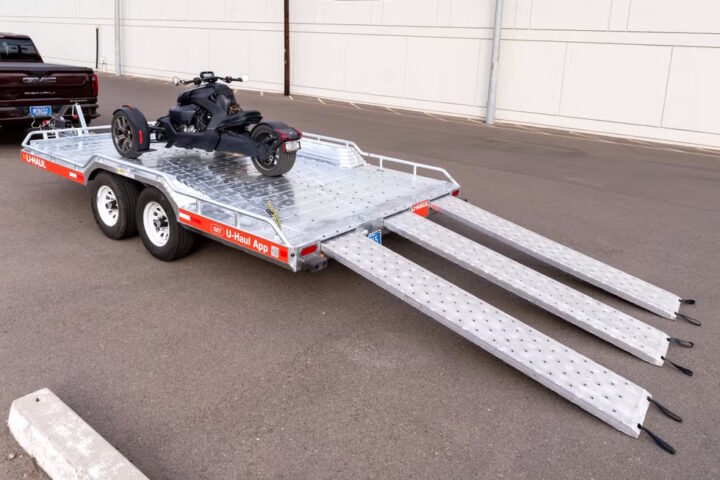If you own a firearm, you should understand the safety regulations you must follow to transport your firearm. In the United States, there is a standard of compliance that differs depending on the state where you are traveling. Since every state has different laws regarding the transportation of gun, you should take the time to read each set before you begin your journey.
While these laws are meant to protect you, step out of line, and you could find yourself facing a big fine or even a felony. Fortunately, the McClure-Volkmer Act of 1986, an amendment to the Gun Control Act of 1986, allows travelers “safe passage” through restricted states with unloaded, appropriately stored, and inaccessible firearms as long as you store the ammunition separately.
But, don’t be fooled. This law is actually as complicated as most gun control laws. Just ask a military veteran, Lieutenant Augustine Kim, who police pulled over and arrested for four felonies despite proper casing and storage. Why wouldn’t the McClure-Volkmer Act of 1986 protect Lt. Kim? Because it only protects you if you are passing through a state only making minimal stops. Longer stays, including an overnight stay, visiting friends and family, or stopping at an attraction, can put you at risk of non-compliance.
Rather than risk violating state and federal law, let’s look at how to transport your firearm in your car.
Keep Your Firearm Unloaded
Most states outlaw “loaded” weapons that are within arm’s reach. But the definition of an “unloaded” gun changes state-by-state. In some states, loaded means have a round in the chamber or a loaded magazine. In other states, a gun is considered “loaded” if there are rounds nearby—meaning the gun and magazine are in the same storage container.
If you want to get the most bang for your buck, you should consider using two separate lockable storage containers for your magazine and your firearm.
You should also limit magazines with a capacity that reaches over ten rounds when you transport your firearm—as most state laws outlaw magazines of specific capacities.
Conceal Your Gun At All Times
Each state, and sometimes local municipalities within a state, define concealing a weapon differently. In almost every case, having a gun on your person in such a manner where it is out of sight is considered concealed. A wonderful rule of thumb, if you are traveling cross-country, is to store your gun in a locked trunk or where it is out of reach.
Along with complying with state law, concealing your weapon also helps you avoid theft.
Get a Concealed Carry Permit
Before you get a gun, you should get your concealed carry permit. Not only will you learn great firearm techniques but you will comply with state law. Plus, to carry your weapon in your vehicle requires the license. However, just having a concealed carry permit in your state doesn’t mean you have free reign over all of America.
Depending on where you received your concealed carry permit and where you are traveling, your permit will only be valid in a few other states. If you do your research, you can find the states where your license is valid and where you should limit travel.
For example, if you are a permanent resident in Utah, your permit is honored in most states but not in others. Take a look at the map below to see which is which. You can visit GunsToCarry.com to check your own state’s permit reciprocity.
 |
| Image Provided By Tuffy Products |
Do Your Research
If you are planning on a longer stay in a particular state, take your time to look at that state’s law. Find out which state honors your permit, what restrictions you must hold while carrying a weapon in your vehicle, and whether you can use it during your trip.
One of the most common travel destinations, California, has some of the strictest gun laws. Make it a point to research those laws carefully. You can solve some of these differences by swapping your gun to the trunk before driving through stricter states and changing back once you leave.
When in doubt, try calling the public information line for the state police where you are looking to travel through for further help.
Find a Reliable Storage Container
If you are planning on transporting your firearm cross-country or just a daily carry, it is crucial you find a secure storage container. In general, if you are keeping your firearm in your vehicle, there are a few spots where you should consider adding a lockable container.
Glovebox
For drivers that need a close-by option, try adding a lockable glovebox to your vehicle. However, when looking for your perfect fit, make sure that the glovebox is extra durable as the glovebox is the first thing thieves go for when breaking into a vehicle. We suggest Tuffy Security Products high-grade lockage storage gloveboxes.
Console
A console insert that includes lockable features is a great choice for everyday use. Check out Tuffy Security Product’s Security Consoles for options that fit your needs. Plus, you won’t have to worry about removing your current console, these inserts fit perfectly inside your specific make and model.
Under Seat Storage
One of the best options to transport your firearm for those traveling through multiple states is under-seat containers. Whether you find your fit in a rear seat lockbox or a sliding drawer, these options offer wonderful security while helping you stay in compliance with most state laws.
Another option for cross-country carriers is a rear cargo lockbox. These trunks and enclosures are great spots for storing your firearm while traveling. Plus, you have added peace of mind when you are storing handbags, shopping bags, and other valuables.
Moveable Lockbox
Don’t worry there are portable storage options that make gun storage
simple. You can store yours in the trunk, backseat or on the ground in front of
your passenger seat.
the gun laws of multiple states can seem overwhelming but take your time to do
your research and find the right storage options, and it will soon become
second nature. Remember to practice the
basic safety rules of gun handling, and exercise common sense. By performing
your due diligence, you should be able to travel with your firearm without
running into any trouble.

























